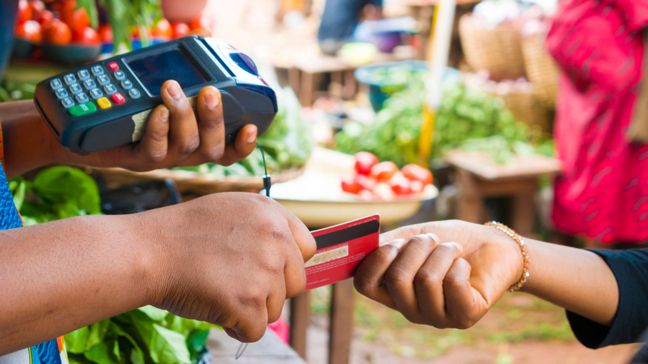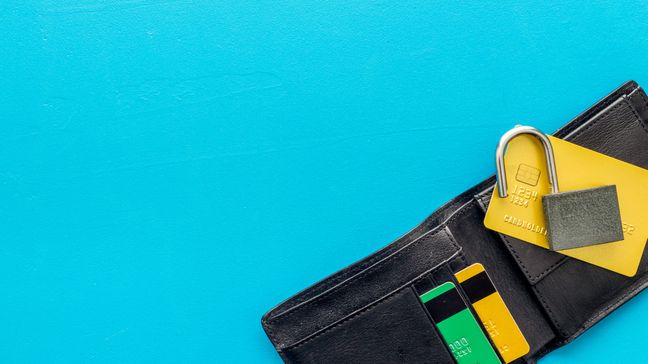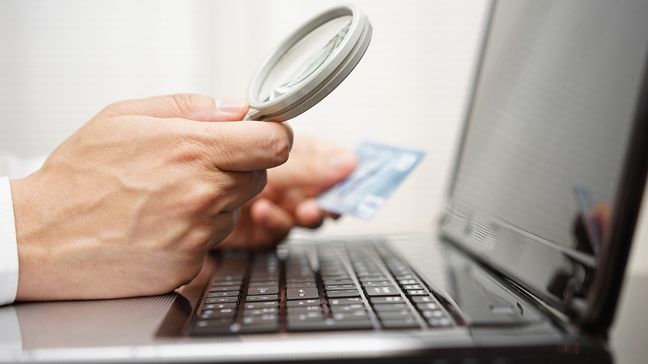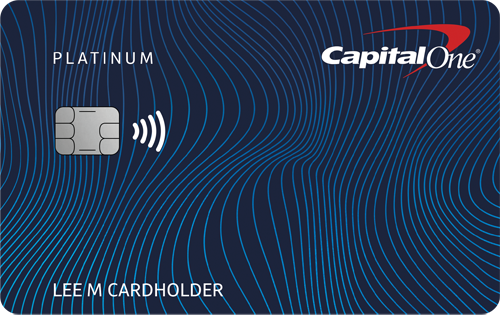Can You Put Money On A Debit Card
You have the money in your checking account, but that doesn't mean you can access it. It's better to know your daily spending limit on your debit cards before you have an embarrassing moment at the store.
Does your debit card have a daily spending limit? Most likely, yes. A debit card spending maximum is set by the individual bank or credit union that issues the debit card. Some debit cards have spending capped at $1,000, $2,000, or $3,000 daily.
Try to spend more than the maximum allowed, and your debit card will be declined even if you have enough money in your checking account. Very embarrassing. There are, however, some steps you can take to deal with debit card spending limits.
Why worry about debit card spending limits?

It's not every day you need to spend more than $1,000 on a debit card. But it happens. Especially if you don't have or wish to use a credit card for major purchases, you may find yourself needing to pay a big car repair bill, book a vacation, or make another large purchase that will cost more than your debit card spending limit.
Daily limits are placed on your card for security reasons. This way your bank account won't be drained of funds if theft or fraud occurs.
Read more: Charge Cards – A smart alternative to debit and credit cards
Ask your bank or credit union what your debit card limits are
Before you can deal with a debit card spending limit, you need to know what it is. A few banks publish this information on their websites or print the information on the paperwork that comes with your card.
If not, you'll need to call up your bank or credit union or ask a teller the next time you're in. Be sure to determine both your ATM cash withdrawal daily limit and your debit card spending limit. They're different.
Typically, your cash withdrawal limit will be lower. Many banks set ATM withdrawal limits at $500 in a 24 hour period. Sometimes it's $1,000. Typically, your ATM spending limit will be higher. Also, ask your bank if ATM transactions count towards your daily spending limit. (If so, and you have a $1,000 total spending limit, when you withdraw $200 from an ATM you could not then make a $900 purchase on your card).
What's your spending limit?

Your spending limit through your bank can vary by the type of account you have and your personal financial history. Nationwide banks like Bank of America, Schwab, US Bank, and Wells Fargo will speak to its customers about daily limits and possibly work with you to make adjustments.
But some large banks are very clear on their set limits, including:
| Bank | ATM daily limit | Debit daily spending limit |
|---|---|---|
| Ally Bank | $1,000 | $5,000 |
| Capital One | $600 - $1,000 | $5,000 |
| Chase | $500 - $3,000 | $3,000 - $7,500 |
| Citibank | $1,000 - $2,000 | $5,000 - $10,000 |
| Citizens Bank | $500 - $1,000 | Varies per person |
| Discover | $510 | Varies per person |
| HSBC | $500 - $1,000 | $3,000 - $5,000 |
| Morgan Stanley | Up to $1,500 | Up to $5,000 |
| Santander | $1,000 - $2,500 | $2,500 - $11,500 |
| USAA | $600 | $3,000 |
Ask to change your debit card spending limits
Most banks will increase debit card limits if you ask. This increase can be either permanent or temporary, with some raises only lasting for a 24 hour period, so make sure you find out ahead of time.
Also, be sure to find out when the increase will take effect. Sometimes it's instantaneous, other times it may take 24 or 48 hours, so if you go to make a big purchase right after hanging up with the bank, the transaction may still not go through.
Credit vs. debit: is credit a good idea for you?

Alternatively, there are times when it is better to use a credit card than a debit card. If you have good credit or you would like to build up your credit history for use later on, applying for a credit card is a good idea. If you use your credit card responsibly, spending can actually create a positive credit history, making you a more likely candidate for approval on better cards in the future. Here's when it's a better idea to reach for a credit card than your debit card:
- If you are short on cash but will be getting more soon.
- If you need to make a purchase that can be broken up into monthly installments.
- If you are paying a lot of interest on a previous debt and wish to consolidate under a lower interest rate.
Of course, the one caveat to this is that you must use your credit card responsibly. This means paying at least your monthly minimum and not letting the interest accrue unnecessarily. If you can handle that, then a credit card is an excellent idea for you for several reasons, for example:
Credit cards help you build your credit

As I mentioned above, responsible credit card spending will actually build your credit and help you raise your credit score.
Cards like the Platinum Secured Credit Card from Capital One or the Capital One Platinum Credit Card allow people with bad or no credit at all to start building their credit with responsible use. And building credit through these cards can take just a matter of a few months (and you may even get a credit line increase after just six months). Debit cards do not offer this type of advantage at all, no matter how long you've been a cardholder.
You can earn amazing rewards from credit card programs
Most credit cards today offer some sort of rewards program. These programs can often be highly lucrative, giving you real cash back, gift cards, and statement credits for the spending you are doing anyway. Even if you don't have great credit, you can earn rewards with a card like the Discover it® Student Cash Back.
The Discover it® Student Cash Back has no annual fee and gives you a tremendous bonus. At the end of the first year, Discover will match all the cashback you've earned. It also earns you a generous 5% cashback on rotating categories every quarter, up to a $1,500 quarterly maximum. Quarterly activation is required for the bonus.
Credit cards offer other benefits too
In addition to rewards points, credit cards offer valuable benefits including airport services, travel insurance and perks, and shopping advantages like extended warranty and purchase protection. Some cards will even give you welcome bonuses and special 0% APRs during your introductory period.
Take, for example, Chase Freedom Flex℠.With this card, you'll get a $200 bonus just for spending $500 in the first three months. You'll earn 5% cash back on grocery purchases, with the exception of Walmart and Target, during your first year as a cardholder. You'll also pay no annual fee and f or an intro APR, you'll recieve a 0% Intro APR on Purchases for 15 months.
Best of all, with the Chase card, you'll earn 5% cash back on up to $1,500 of purchases each quarter by activating bonus categories, as well as 3% cash back on dining and drugstore purchases and 1% on all other purchases. You can also get 5% cash back on travel by booking it through Chase using your card. All this, plus special cardholder offers on services like Doordash and Lyft.
Credit cards are an emergency line of credit
While you may hope you'll never need it, a credit card is a good emergency fund in case the need ever does arise. Whether it's a medical emergency, an unexpected repair needed on your house, or a car part replacement that ends up costing you thousands of dollars you just don't have, credit cards offer you the flexibility to stay covered in these unpredictable times.
Credit cards offer debt consolidation options
Another perk to credit cards is the introductory offers. Some will give you 0% APR for a limited amount of time. If you have debt or need to make a large purchase, this can save you hundreds or even thousands of dollars by canceling the interest payments for that introductory period of time.
TheCiti Double Cash® Card – 18 month BT offers a0% intro for 18 months on Balance Transfers – making it a great debt consolidation option. You'll have 18 months to catch up on payments while saving on interest. In terms of purchases, the APR ranges from 13.99% - 23.99% (Variable). You'll also earn 1% unlimited cash back on every new purchase, along with an additional 1% when you pay off those purchases when you pay in full or over time.
Summary
Still using only your debit card for daily purchases? Debit cards can be great at times – and sometimes credit cards are a better choice (if you use them responsibly).
Or, you may even consider using a check to make larger purchases. While checks seem outdated compared to debit or credit cards, it makes sense to use them if you need to purchase something that exceeds your debit card limit. As long as the check will clear, there is no limit to how much you can spend with a personal check.
Read more:
- 5 Biggest Debit Card Dangers
- How To Use A Debit Card Safely
Related Tools
Save Your First - Or NEXT - $100,000
Sign Up for free weekly money tips to help you earn and save more
We commit to never sharing or selling your personal information.
Can You Put Money On A Debit Card
Source: https://www.moneyunder30.com/debit-card-daily-spending-limit
Posted by: alligoodwousing.blogspot.com

0 Response to "Can You Put Money On A Debit Card"
Post a Comment